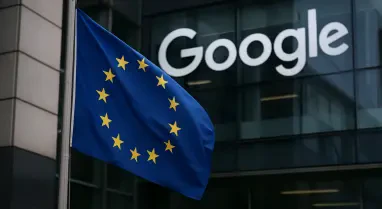In a striking development that has sent ripples through the tech industry, French authorities have launched a criminal investigation into Apple Inc., accusing the tech giant of potential privacy violations linked to its Siri voice assistant. This probe, driven by allegations of unauthorized data collection without proper user consent, places Apple under intense scrutiny in one of its major European markets. Stemming from a complaint by a tech researcher, the investigation centers on whether Apple’s practices with Siri contravene the stringent rules of the European Union’s General Data Protection Regulation (GDPR). Announced by the Paris prosecutor’s office, this case underscores a growing tension between cutting-edge technology and the imperative to protect personal data. As privacy concerns mount globally, this investigation could serve as a bellwether for how tech companies balance innovation with legal and ethical obligations in data handling.
Unpacking the Allegations Against Siri
The core of the French investigation revolves around Apple’s Siri quality improvement program, which allegedly involved human reviewers listening to user conversations to refine the assistant’s capabilities. Critics contend that the opt-in mechanisms for this program were far from transparent, potentially leading to the collection of voice data without explicit permission. Reports of accidental activations—triggered by phrases resembling “Hey Siri”—have further fueled concerns that private conversations, including sensitive information, may have been recorded and analyzed without users’ knowledge. This raises significant questions about whether Apple adequately informed its customers about the extent of data usage, a key requirement under GDPR. The allegations paint a troubling picture of a system where convenience and technological advancement might have come at the expense of individual privacy rights, prompting regulators to step in with a formal inquiry.
Beyond the immediate accusations, this case echoes past controversies surrounding Apple’s handling of voice data. A notable incident in 2019 revealed that contractors had access to private conversations, sparking public outcry and leading Apple to temporarily suspend the program while promising reforms. Despite these assurances, the current French probe suggests that lingering issues persist in how voice recordings are managed on a global scale. The investigation highlights a pattern of challenges for Apple in aligning its data practices with Europe’s rigorous privacy standards. GDPR mandates explicit consent and data minimization, principles that appear to clash with the data-heavy nature of AI technologies like Siri. As French authorities delve deeper, the focus will likely be on whether Apple’s safeguards, such as encryption and opt-out options, truly meet the threshold of informed consent, especially in scenarios involving unintended activations.
Regulatory Pressure and Industry Implications
The French probe into Apple’s practices is emblematic of a broader wave of regulatory scrutiny facing Big Tech in Europe, where GDPR has become a powerful tool to enforce privacy standards. Voice assistants like Siri, while revolutionary, rely on vast amounts of personal data to function effectively, creating inherent conflicts with laws designed to limit data collection. European regulators have expressed skepticism about whether Apple’s protective measures sufficiently address the nuances of user consent, particularly when devices inadvertently capture audio. This investigation could set a critical precedent, not only for Apple but also for competitors like Google and Amazon, whose similar technologies face parallel criticisms. The outcome may push the industry toward adopting more privacy-centric approaches, such as federated learning, which processes data on-device rather than in centralized servers, minimizing exposure risks.
Moreover, the criminal nature of this investigation elevates the stakes beyond typical civil penalties or fines. French prosecutors are exploring charges related to unauthorized data access and privacy invasion, a stark contrast to previous U.S. settlements where Apple paid $95 million over comparable Siri eavesdropping claims. A conviction or substantial penalty could force Apple to overhaul its data handling processes, potentially impacting the functionality of future products and features tied to artificial intelligence. Market reactions have already shown unease, with a slight dip in Apple’s stock price reflecting investor concerns about operational restrictions or costly redesigns. Beyond immediate financial implications, this case could trigger EU-wide audits of voice technology, compelling tech giants to prioritize privacy-by-design principles. The ripple effects might reshape how personal data fuels innovation across the sector, setting new benchmarks for compliance.
Apple’s Defense and Public Perception
In response to the allegations, Apple has reiterated its dedication to user privacy, emphasizing that Siri data is processed with encryption and that users retain control over their participation in data-sharing programs. The company has positioned itself as a leader in safeguarding personal information, often contrasting its policies with those of other tech giants. However, this narrative faces challenges from both regulators and the public, who question whether these protections are as robust as claimed, especially given past missteps. The French investigation casts doubt on Apple’s ability to fully align with GDPR’s stringent requirements, particularly in ensuring transparency around data collection practices. This discrepancy between Apple’s public stance and regulatory findings creates a complex dynamic, where trust becomes a pivotal factor in the ongoing discourse.
Public perception of Apple’s privacy practices is also at a crossroads, shaped by high-profile cases like this one. While many users value the convenience of voice assistants, growing awareness of data misuse risks has led to heightened skepticism. The idea that personal conversations could be accessed without clear consent strikes a nerve, especially in Europe, where privacy is often viewed as a fundamental right. Industry observers suggest that even if Apple emerges from this probe without severe penalties, the damage to its reputation could linger, influencing consumer behavior. The company might need to invest in more visible and accessible privacy tools to rebuild confidence. Meanwhile, the broader tech community watches closely, aware that the resolution of this case could redefine expectations for how voice technology integrates with legal and ethical standards, pushing transparency to the forefront of design considerations.
Navigating Future Challenges in Privacy and Innovation
Looking ahead, the French investigation into Apple’s Siri practices could have profound implications for how the company operates within the European market. If violations are confirmed, Apple may be compelled to redesign how Siri processes and stores voice data, potentially limiting certain AI functionalities to comply with GDPR’s rigorous framework. Such changes could involve significant costs and technical challenges, affecting the user experience of upcoming products. Additionally, French authorities might seek international cooperation, given Apple’s U.S. base, adding layers of complexity to the legal proceedings. The possibility of subpoenas for internal documents further intensifies the scrutiny, as regulators aim to uncover the full scope of data handling practices over recent years.
The broader lesson from this probe lies in the urgent need for tech companies to reconcile their ambitions with evolving privacy expectations. As AI continues to permeate everyday life, the balance between innovation and ethical responsibility becomes increasingly delicate. The industry may need to accelerate the adoption of decentralized data models to mitigate risks of non-compliance. For Apple, the path forward likely involves not only addressing the specific concerns raised by French authorities but also proactively enhancing global privacy measures. Reflecting on how this case unfolded, it became clear that transparency in data usage was not just a regulatory requirement but a cornerstone of user trust. The steps taken in response to these allegations ultimately shaped a critical dialogue about the future of technology in a privacy-conscious world.






